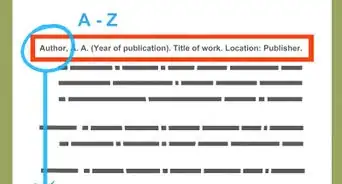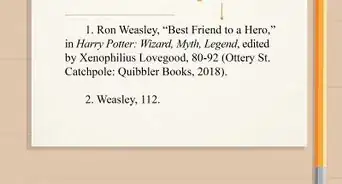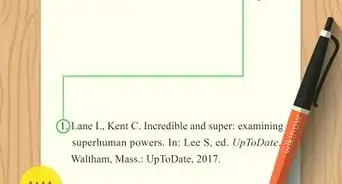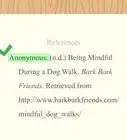This article was co-authored by wikiHow staff writer, Jennifer Mueller, JD. Jennifer Mueller is a wikiHow Content Creator. She specializes in reviewing, fact-checking, and evaluating wikiHow's content to ensure thoroughness and accuracy. Jennifer holds a JD from Indiana University Maurer School of Law in 2006.
There are 9 references cited in this article, which can be found at the bottom of the page.
This article has been viewed 22,715 times.
Learn more...
When doing research for a paper, you may have sources you want to reference that you accessed in eBook form, rather than print form. The citation format for eBooks is slightly different for eBooks than for print books. The specifics of your citation will differ depending on whether you're using Modern Language Association (MLA), American Psychological Association (APA), or Chicago/Turabian style.
Steps
Using MLA Style
-
1Start with the author's name. When listing the author's name in MLA, put their last name first, followed by their first and middle names. Avoid initials wherever possible. If there are multiple authors, each subsequent author should be listed in regular "first-middle-last name" order. Separate the names of multiple authors with commas.[1]
- For example: "McGill, Ivan, John Kurt Glenn, and Alice Brockbank."
- With multiple authors, list the names in the same order they are listed on the title page of the eBook. If there are more than three, list the first name only followed by the abbreviation "et al." For example: "McGill, Ivan, et al."
-
2Provide the title of the book and the format. The title of the book should be italicized and capitalized as it is in the title page. Put "e-book" after the title. If the specific format, such as Kindle or Nook, is available, use that instead of the generic "e-book."[2]
- For example: "McGill, Ivan, John Kurt Glenn, and Alice Brockbank. The Action Learning Handbook: Powerful Techniques for Education. Kindle ed."
Advertisement -
3List the publisher of the book and year of publication. Follow the format of the book with a comma, then include the name of the publisher of the book. Put a comma after the publisher's name, then provide the year the book was published. This information can be found on the title page of the book.[3]
- For example: "McGill, Ivan, John Kurt Glenn, and Alice Brockbank. The Action Learning Handbook: Powerful Techniques for Education. Kindle ed., Rutledge Falmer, 2014."
-
4Provide online location information if needed. If you accessed the eBook online rather than by using software to read it on a device or computer, you need to point your readers to the specific URL where the book can be accessed. Include the date you accessed the work in day-month-year format.[4]
- For example: "Cohen, Daniel. Our Modern Times: The New Nature of Capitalism in the Information Age. MIT Press, 2013. eBook Collection (EBSCOhost). https://akin.css.edu/login?url=http://search.ebscohost.com/login.aspx?direct=true&db=nlebk&AN=694388&site=eds-live&scope=site. Accessed 11 Jan. 2016."
-
5Use in-text signals to properly reference the work. MLA typically doesn't require parenthetical in-text citations for online references. However, you still need to alert your readers to the fact that you're paraphrasing or quoting a source.[5]
- Use signal words such as "according to" or "as noted by," and provide the names of the authors of the work. This enables your readers to quickly locate the citation in your Works Cited.
- For example: "According to Daniel Cohen, the internet has altered the traditional form of capitalism."
Using Chicago Style
-
1Provide the name of the author. List the name of the author in "last name, first initial" format. If there is more than one author, list subsequent authors in regular "first initial last name" order. Place a comma between author names, and use the word "and" before the final author in a list.[6]
- For example: "Bass, Len, Paul Clements, and Rick Kazman."
- With multiple authors, list them in the same order as they appear on the title page of the book. Don't list more than 7 authors. If there are more than 7 authors, include the names of the first 7 followed by the abbreviation "et al."[7]
-
2Include the original date of publication. An eBook may be published at the same time as the original book was published. However, for older books, the eBook edition typically comes out later. For Chicago style citations, you need to use the original, copyright date found on the title page.[8]
- For example: "Bass, Len, Paul Clements, and Rick Kazman. 2003."
-
3List the title of the book. The title of the book follows the publication year, and should be italicized. Capitalize the title exactly as it appears on the title page for the book. If there are multiple editions of the book, list the edition you used after the title. Don't italicize the edition.[9]
- For example: "Bass, Len, Paul Clements, and Rick Kazman. 2003. Software Architecture in Practice. 2nd ed."
-
4Provide publication information. The next part of your Chicago citation provides your reader with the location where the book was published and the name of the publisher. Include enough information to correctly distinguish the location. Leave off words such as "Inc." at the end of the publisher's name.[10]
- For example: "Bass, Len, Paul Clements, and Rick Kazman. 2003. Software Architecture in Practice. 2nd ed. Reading, MA: Addison Wesley."
-
5Include information about the source of the book. The final part of a Chicago citation provides details on the format of the eBook and where or how you accessed it. If the eBook can be read through a device, such as a Kindle, you would list that. If you accessed it online, provide a direct URL to the book.[11]
- For example: "Parpart, Jane L., M. Patricia Connelly, and V. Eudine Barriteau, eds. 2000. Theoretical Perspectives on Gender and Development. Ottawa, Canada: International Development Research Centre. http://www.idrc.ca/en/ev-9419-201-1-DO_TOPIC.html."
-
6Some eBooks have a digital object identifier (DOI) number. If so, include this number at the end of your citation. You can typically find this number on the title page of the eBook. It will begin with "10" followed by a 4-digit prefix, then a slash and unique suffix numbers.[12]
-
7Use the author-date system for in-text citations. With Chicago or Turabian style, you may use footnotes or parenthetical in-text citations, depending on the requirements of the class or program for which you're writing your paper.[13]
- Footnotes contain basically the same information as the full citation, except that the first author's name is listed in regular order (first name last name) rather than last name first.
- For parenthetical citations, list the last name of the author or authors followed by a comma and the year of publication. For example: "(Bass, Clements, & Kazman, 2003)."
Using APA Style
-
1Start with the author's name. In APA style, list the author's last name, then a comma, then their first and middle initials. If there is more than one author, list the additional authors using the same format as the first author. Separate authors' names with commas, placing an ampersand before the final author's name.[14]
- For example: "King, S., Koonts, D., & Salvatore, R. A."
-
2Provide the year of publication. Look on the title page to find the year the eBook was published. For APA style, go with the year that specific edition was published, which may differ from the publication date for the print edition. Place the year of publication in parentheses.[15]
- For example: "King, S., Koonts, D., & Salvatore, R. A. (2017)."
-
3List the title and format of the book. Your citation should include the full title and subtitle (if any) of the book, using sentence-style capitalization. This means typically only the first word of the title (or subtitle) and any proper nouns will be capitalized. Follow that with the format in brackets.[16]
- For example: "King, S., Koonts, D., & Salvatore, R. A. (2017). American horror and fantasy in the 20th century [Kindle DX version]."
-
4Include any additional identifying information. Additional source information may include a direct URL or digital object identifier (DOI) number. These allow your readers to directly access your source more quickly.[17]
- For example: "King, S., Koonts, D., & Salvatore, R. A. (2017). American horror and fantasy in the 20th century [Kindle DX version]. Retrieved from Amazon.com."
- If you accessed the book online, provide the date you accessed the book. For example: "Ochs, S. (2004). A history of nerve functions: From animal spirits to molecular mechanisms [ebrary Reader version]. Retrieved September 1, 2011 from http://www.ebrary.com/corp/."
-
5List the author and the date for in-text citations. Parenthetical citations in the body of your paper prove the last name of the author or authors, followed by a comma and the year the book was published.[18]
- For example: "(King, Koonts, & Salvatore, 2017)."
- If you mention the name of the author or authors in your text, you only need to provide the year of publication in parentheses after the last author's name. For example "According to King, Koonts, and Salvatore (2017), horror book sales increase in October."
References
- ↑ http://libguides.css.edu/c.php?g=41682&p=265039
- ↑ https://style.mla.org/2016/06/23/citing-an-e-book/
- ↑ http://libguides.css.edu/c.php?g=41682&p=265039
- ↑ http://libguides.css.edu/c.php?g=41682&p=265039
- ↑ https://owl.english.purdue.edu/owl/resource/747/02/
- ↑ http://libguides.murdoch.edu.au/Chicago/ebook
- ↑ http://libguides.utep.edu/c.php?g=429690&p=2936116
- ↑ http://libguides.murdoch.edu.au/Chicago/ebook
- ↑ http://libguides.murdoch.edu.au/Chicago/ebook
- ↑ http://libguides.utep.edu/c.php?g=429690&p=2936111
- ↑ http://libguides.murdoch.edu.au/Chicago/ebook
- ↑ http://libguides.murdoch.edu.au/c.php?g=246210&p=1640733
- ↑ http://middlebury.libguides.com/friendly.php?s=citation/chicago
- ↑ http://blog.apastyle.org/apastyle/2011/06/how-do-you-cite-an-e-book.html
- ↑ http://blog.apastyle.org/apastyle/2011/06/how-do-you-cite-an-e-book.html
- ↑ http://blog.apastyle.org/apastyle/2011/06/how-do-you-cite-an-e-book.html
- ↑ http://blog.apastyle.org/apastyle/2011/06/how-do-you-cite-an-e-book.html
- ↑ http://blog.apastyle.org/apastyle/2011/06/how-do-you-cite-an-e-book.html
About This Article
To cite an eBook in MLA style, start with the author’s name, last name first, then a comma followed by their first and middle names. Add a period, then list the title of the eBook in italics, followed by another period. Next, list the eBook format, like Kindle or Nook edition, then a comma, the name of the publisher, another comma, and the year the book was published, and a period after the year. If you accessed the eBook at a certain web address, include it after the year. To learn how to cite an eBook using APA or Chicago style, scroll down!
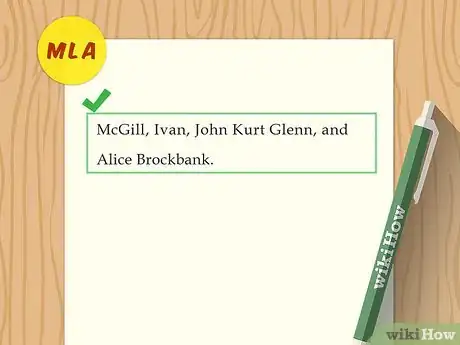
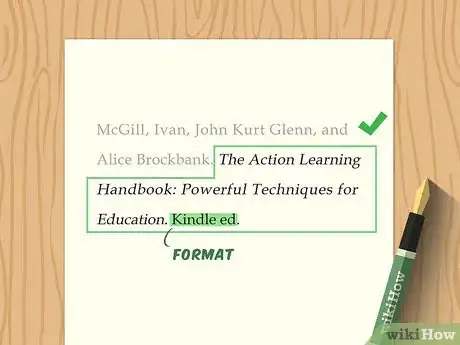
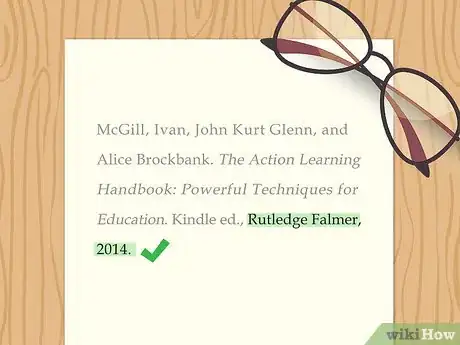
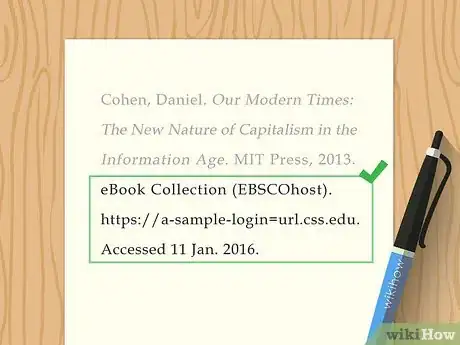
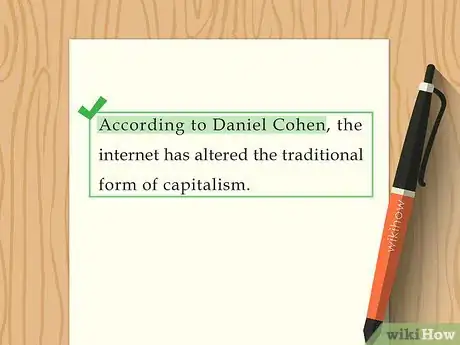
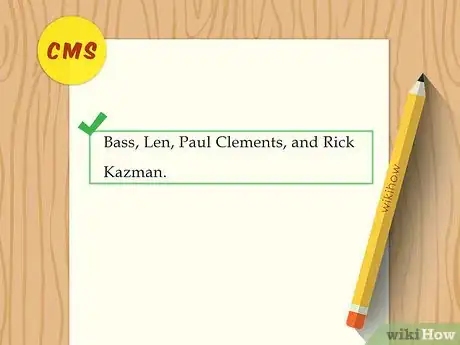
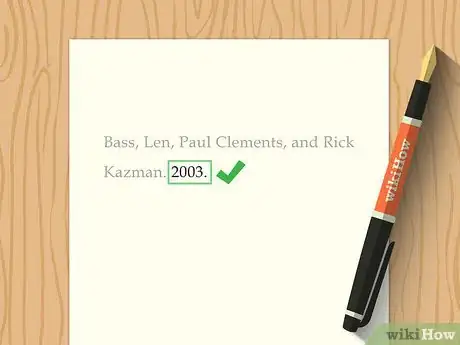
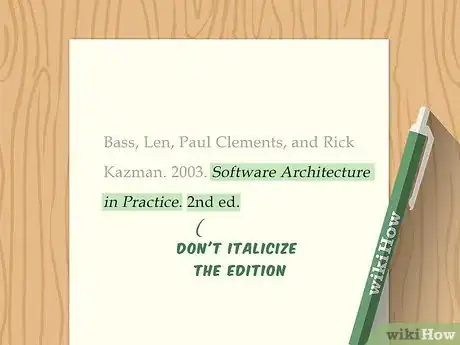
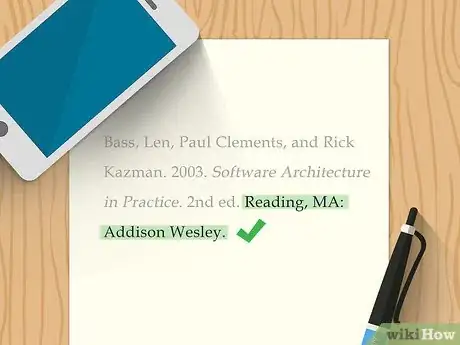
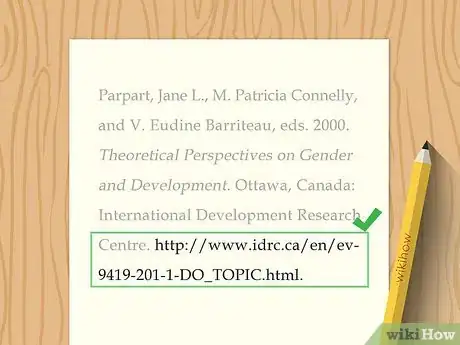
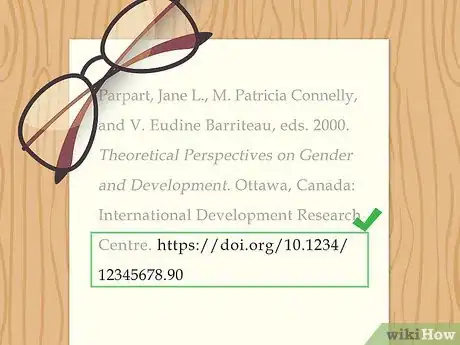
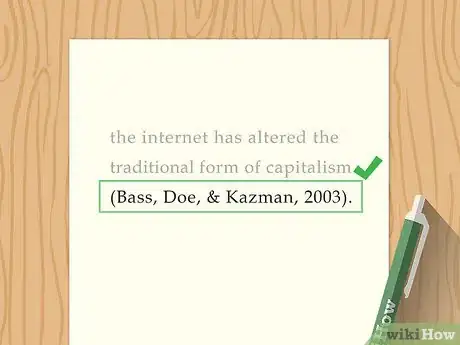
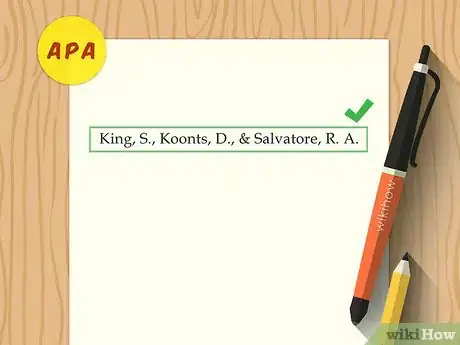
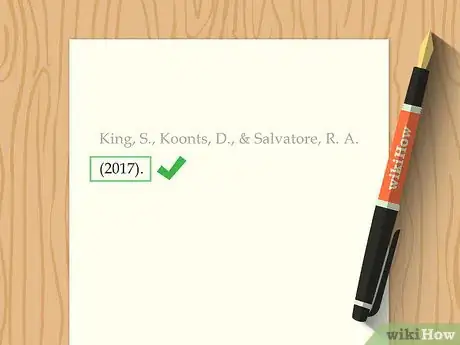
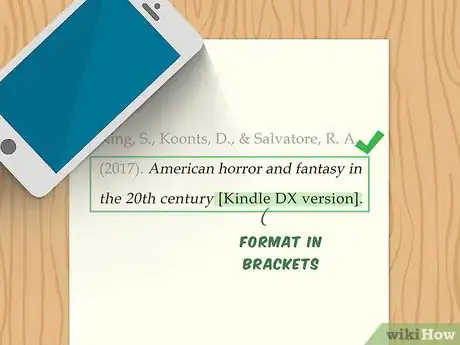
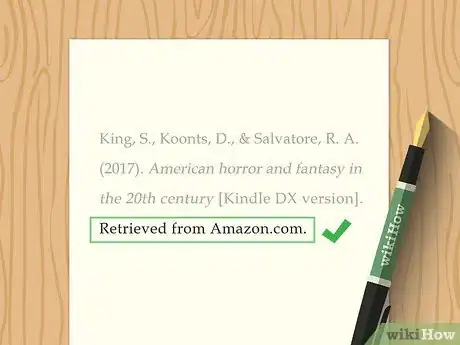
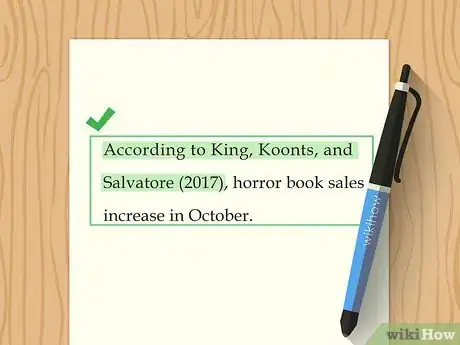
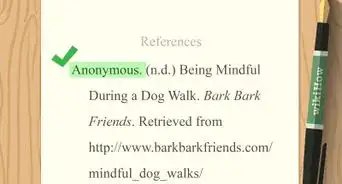


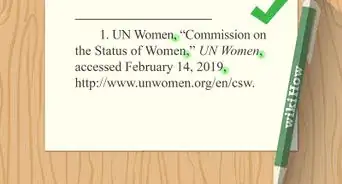
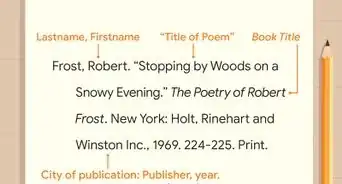
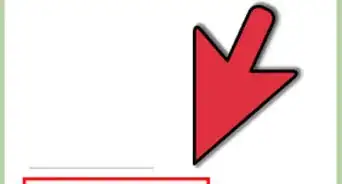

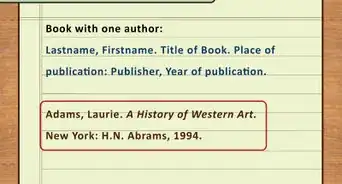

-Step-18.webp)

